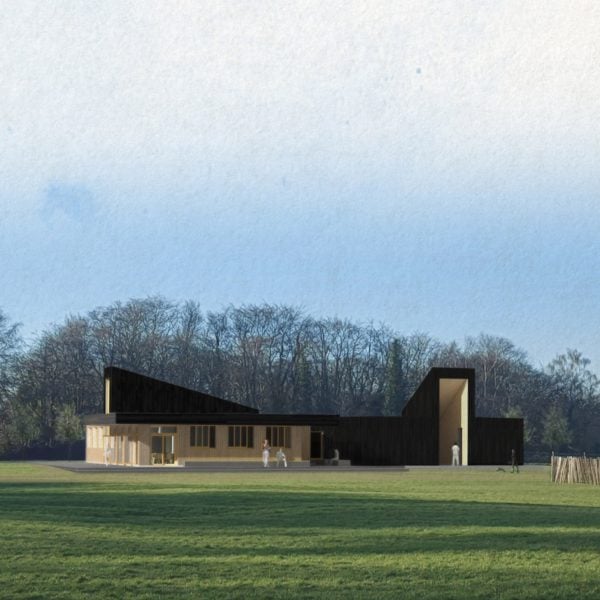Dezeen School Shows: a proposal for social housing which references the work of Le Corbusier is included in Dezeen’s latest school show by students at University of Brighton.
Also featured is a proposal for a food market in Brighton, UK, and a rammed earth and brick building used as both a cricket venue and dance studio.
Institution: University of Brighton
School: Architecture Technology and Engineering
Courses: BA (Hons) Architecture L6 and BA (Hons) Interior Architecture
Tutors: Nick Ardill, Luis Diaz, Glenn Longden-Thurgood, Andre Viljoen, Georgia White, Judit Pusztaszeri, Dr Rafaella Siagkri, Terry Meade, Dr Elisa Lega, Dr Zakkiya Khan, Dr Peter Marsh, Alberte Lauridsen and Lizzie Walkden
School statement:
“The BA (Hons) Architecture course offers a wide range of approaches to design through its studios, offering opportunities to work through a range of scales, from one-to-one installations to urban scale interventions while exploring design through both analogue and digital means.
“The range of vertical studios gives the opportunity for level 5 and 6 students to study side-by-side focussing on a variety of sites, programmes and specialisms.
“Our studios continue to pursue agendas related to environmental challenges, such as designs which take account of flood risk, the re-use existing buildings or their materials.
“This year our sites ranged in character from central Brighton, Bexhill and its environs and central London.
“Students in all studios were encouraged to challenge standard ways of working in the discipline through our research-led teaching providing students with the most current critical and practical skills to address contemporary challenges.
“The BA (Hons) Interior Architecture has developed a wealth of cross-disciplinary experimental approaches to architectural education, aligning with the UN’s sustainable development goals.
“Key to the course’s ethos is working with existing sites and their contexts, holistically.
“The course’s teaching methodologies seek extra care and attention in listening to what sites and their users need and intimately responding to local contexts comprising social, technological, historical, climate-specific and material facets.”
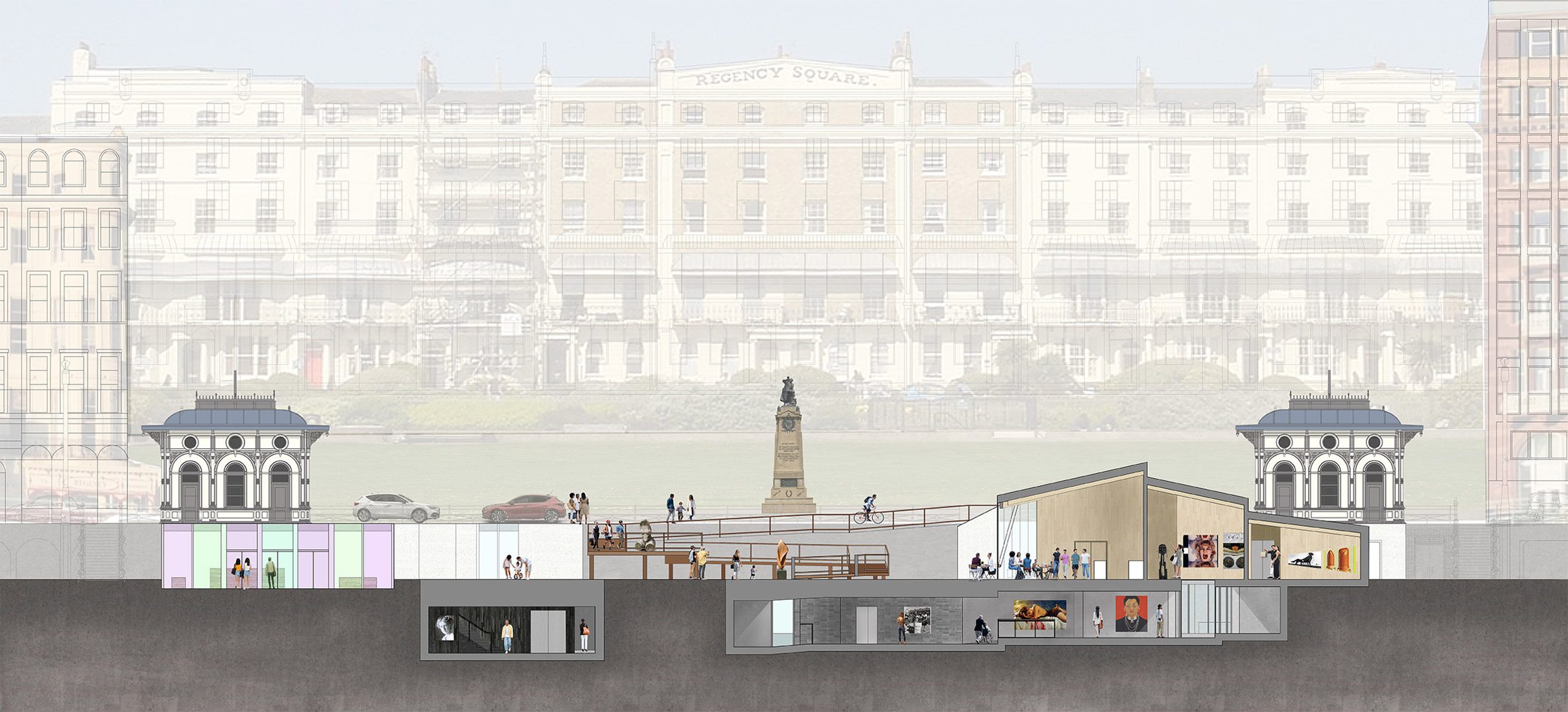
Women’s Museum by Jasmine Cook
“My aim was to design a women’s museum which paid homage to the women’s liberation movement by interpreting it through architectural decisions.
“The circulation, lighting and material choices reflect the struggles and successes over history for women to be seen and heard and given an equal space in society and under law.
“The basement level’s form was directly developed from a graph with key dates from the women’s liberation movement plotted on to it, while external finishes were selected to highlight three key colours associated with the women’s liberation movement.
“As I was designing a building dedicated to highlighting the journey of a disadvantaged gender, I was acutely conscious of accessibility and inclusivity within the design.
“I felt very passionate throughout the project about the theme I was designing the museum around and that motivated me to produce work that I hope could honour that.”
Student: Jasmine Cook
Course: BA (Hons) Architecture L6
Tutors: Nick Ardill and Jeremy Diaper
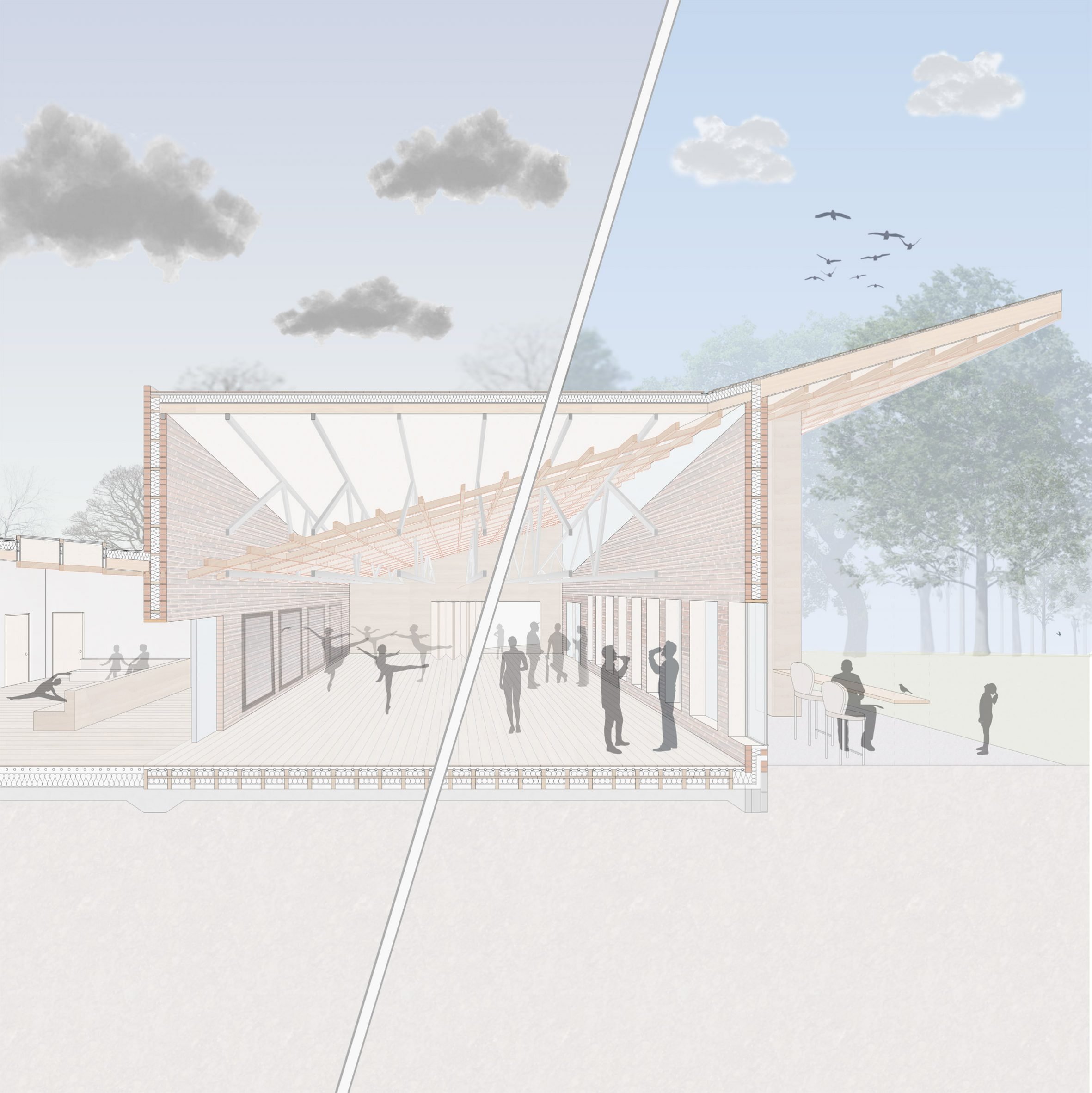
Sidley Cricket Club by Beatrice North
“Due to an increase in family homes in Bexhill, a sport centre for the Sidley Cricket Club and a base for the community was deemed essential.
“My design provides a multi-use venue for cricket in the summer months and a dance studio all year round.
“A multifunctional room can be used as a club room and a dance studio.
“At times when a cricket match and dance occur simultaneously the external areas allow for viewing the match, bird watching and other social activities.
“The building is formed of two intersecting structures of brick with a recycled steel truss roof with rammed earth and timber lattice structure, reflecting the harmony between cricket and dance.”
Student: Beatrice North
Course: BA (Hons) Architecture L6
Tutors: Glenn Longden-Thurgood, David Chambers and Tom Atkinson
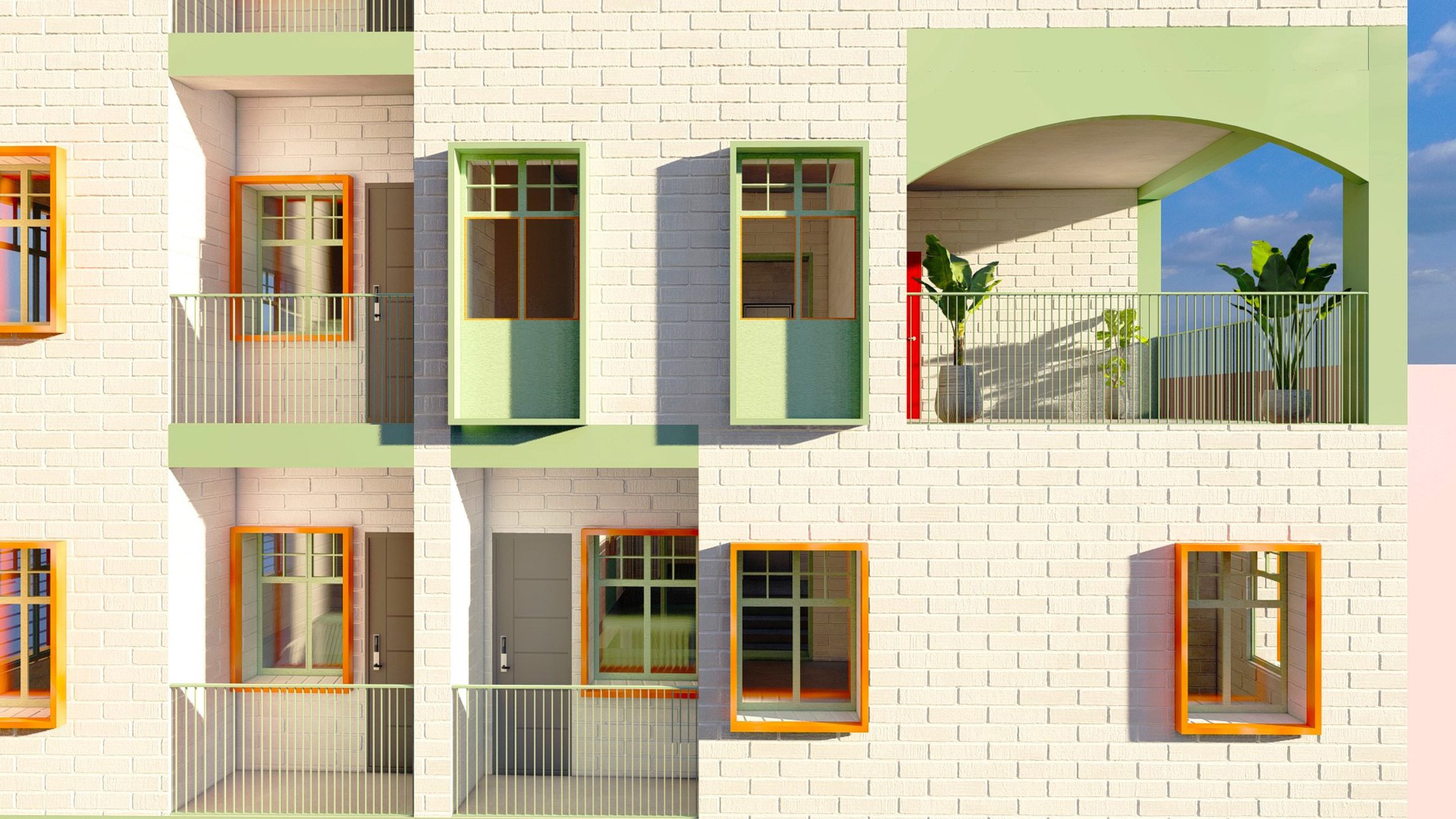
The Hollow Machine by Sovisakha Kong
“The Hollow Machine is a proposal for social housing that creates a collective habitat for individuals rather than defensive territories.
“This interprets Le Corbusier’s ‘a house is a machine for living’ as ‘a block as a machine for many to live in’.
“The routes from the city to dwellings aim to provide a sense of belonging; they lead into and through a central hollow space up to front doors.
“The hollow space is the heart of the project and acts as the focusing point where residents can unite.
“The fact that neighbours see each other and can say hello when they step out of their homes highlights the connectivity and security that I would like to bring to the residents.”
Student: Sovisakha Kong
Course: BA (Hons) Architecture L6
Tutors: Luis Diaz, Sean Albuquerque and Nick Woodward
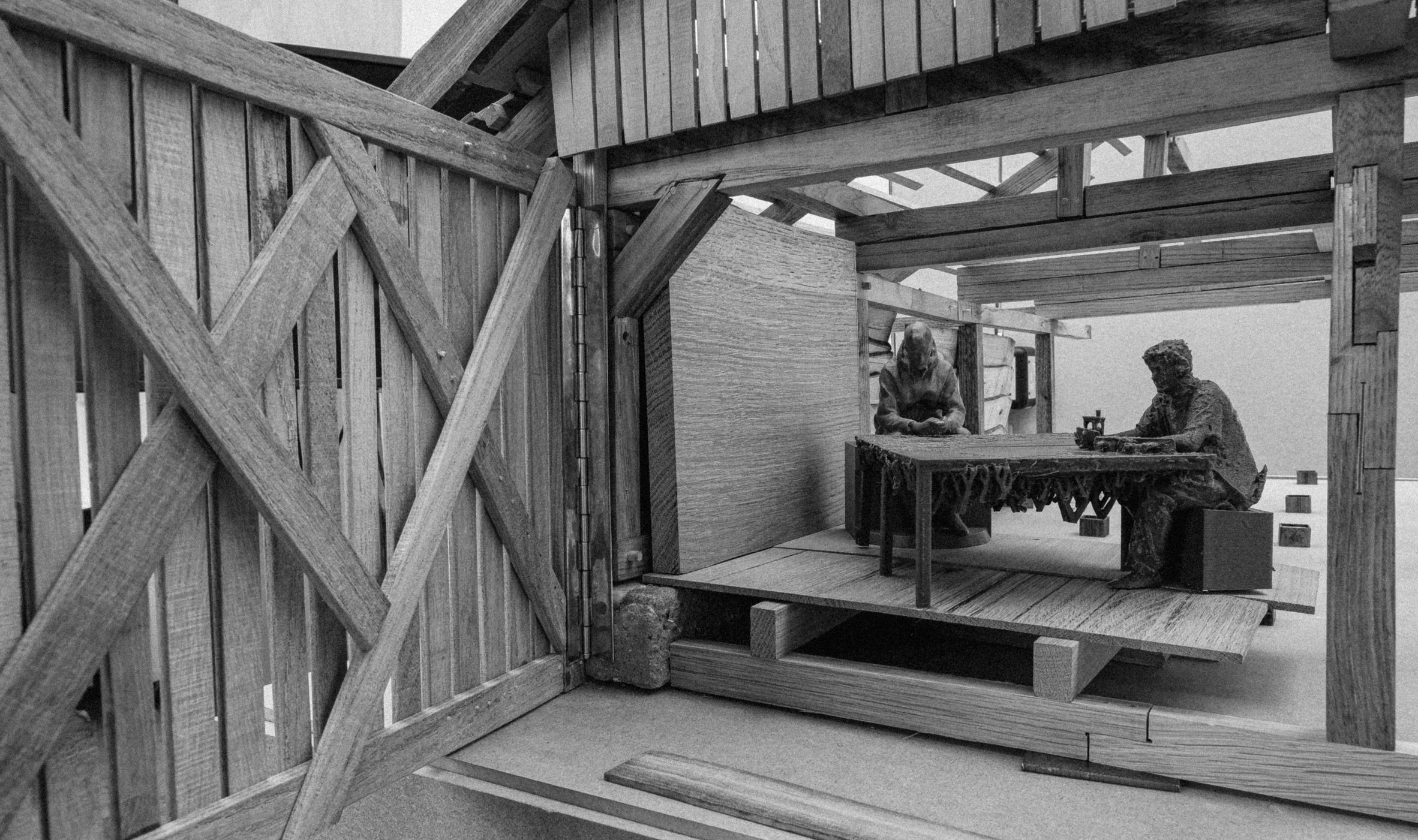
Sidley Cricket Club by Jamie Singleton
“Based on Widgetwoods Recreation ground, this cricket pavilion is a contemporary take on traditional building methods.
“It acts as a key social meeting point between the parish of Sidley and the arable farmlands towards the high weald, north of the site.
“All year long the space acts as a pub with a series of craft and bodge based events whilst then transforming into a cricket pavilion in season using interior articulating walls.
“This project utilises the craft and bodge aspect to skill up the public in a means correctly repair and maintain the building to create true sustainable stewardship.
“Through utilising the club members to maintain and look after the building, this also opens opportunities for them to replant the materials to replace the damaged elements in years to come.
All the materials are locally sourced and are biproducts of natural systems.
Student: Jamie Singleton
Course: BA (Hons) Architecture L6
Tutors: Glenn Longden-Thurgood, David Chambers and Tom Atkinson
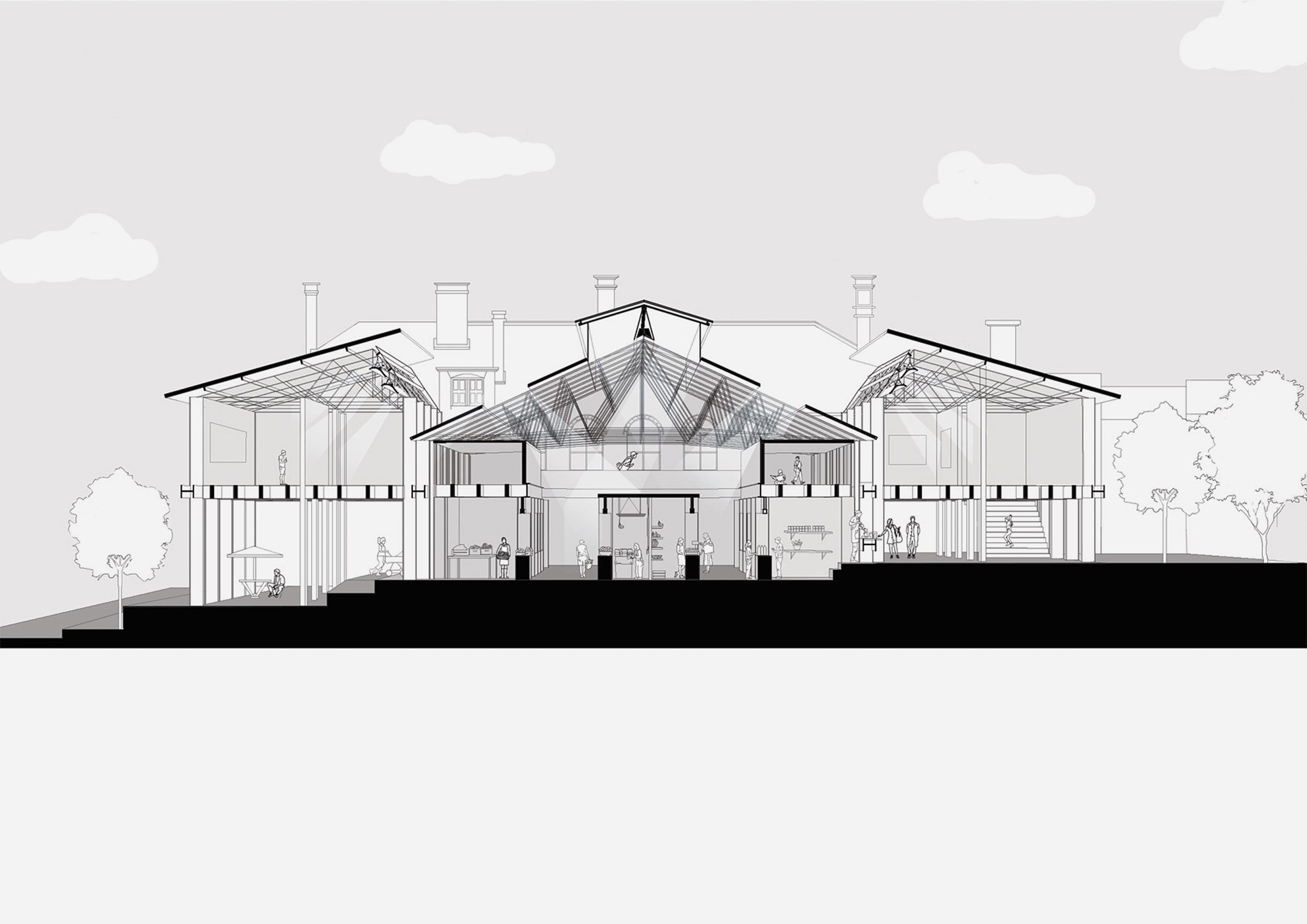
Church Street Market by Alma Akhavi
“Church Street Market is a project based around a retrofit agenda.
“Located in Brighton at the junction of Church Street and Queens Road, the Drill Hall was occupied by the Royal Sussex regiment up until the 1960s and is now being used as an antique storage space, inaccessible to the public.
“By reimagining the space as a food market and opening it up to the public, this project aims to further investigate its potential in reshaping the unused space in relation to its surrounding context.
“There are a series of double-sided market stalls which are created by openings in the existing brick walls.
“In addition, the added structures on the left and right-hand side of the market are to be used as an art gallery accessible from both the exterior and interior of the market hall for independent use of one another.”
Student: Alma Akhavi
Course: BA (Hons) Architecture L5
Tutors: Andre Viljoen and Sebastian Elliot
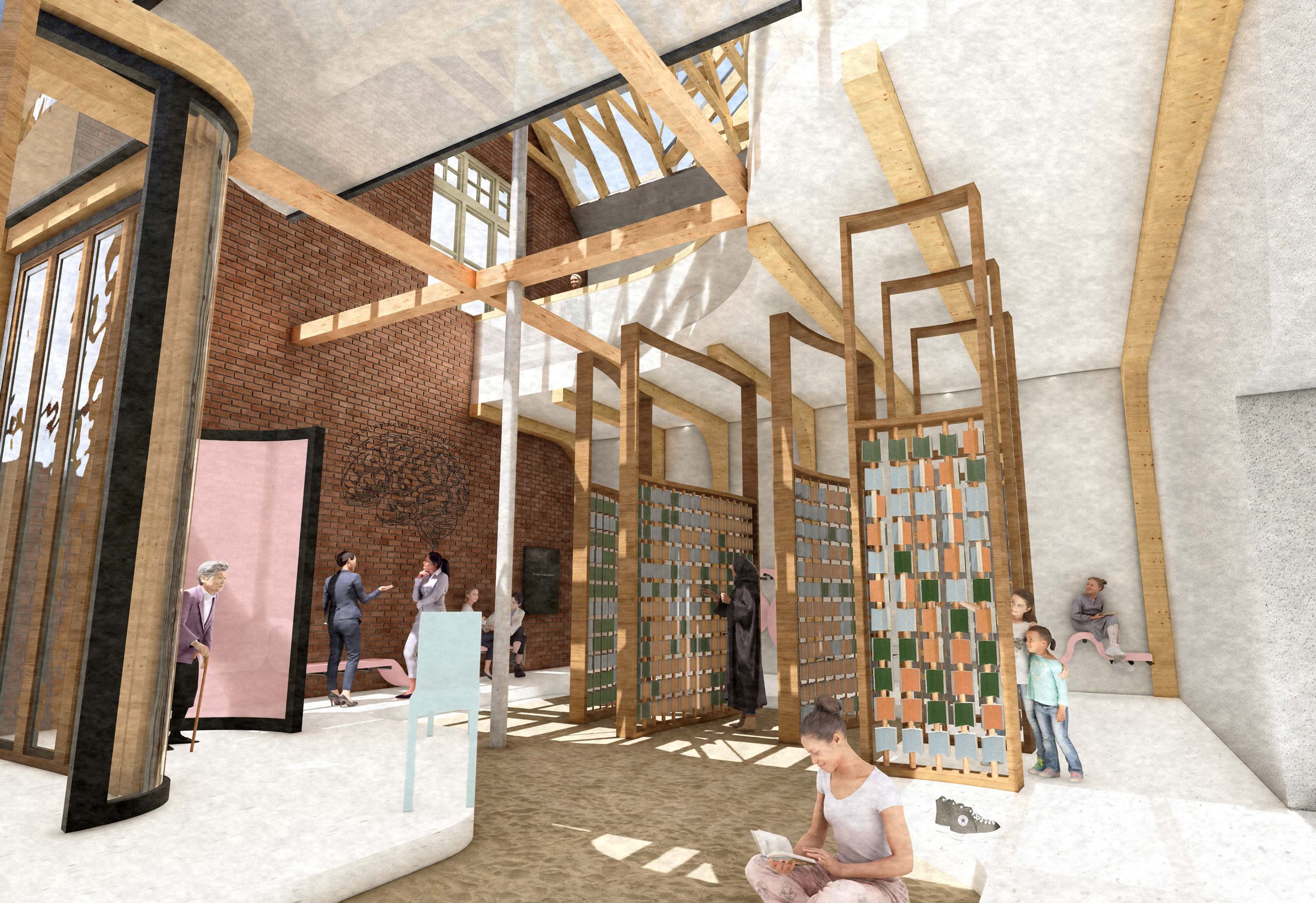
The Mindful Retreat Trust by Mia Soman
“The Mindful Retreat Trust project creates a community space for women dealing with hypo and hyper anxiety.
“It encourages women to engage with health professionals, addressing the gap in common practice according to statistics.
“Utilising multi-sensory spatial design, the space incorporates calming scents to help women relax and unwind when overwhelmed.
“Additionally, the space serves as an informative hub on female mental health, providing resources and support.
“By fostering a supportive and therapeutic environment, the project aims to empower women to seek the help they need and promote mental wellbeing.”
Student: Mia Soman
Course: BA Interior Architecture
Tutors: Judit Pusztaszeri, Dr Rafaella Siagkri, Terry Meade, Dr Elisa Lega, Dr Zakkiya Khan, Dr Peter Marsh, Alberte Lauridsen and Lizzie Walkden
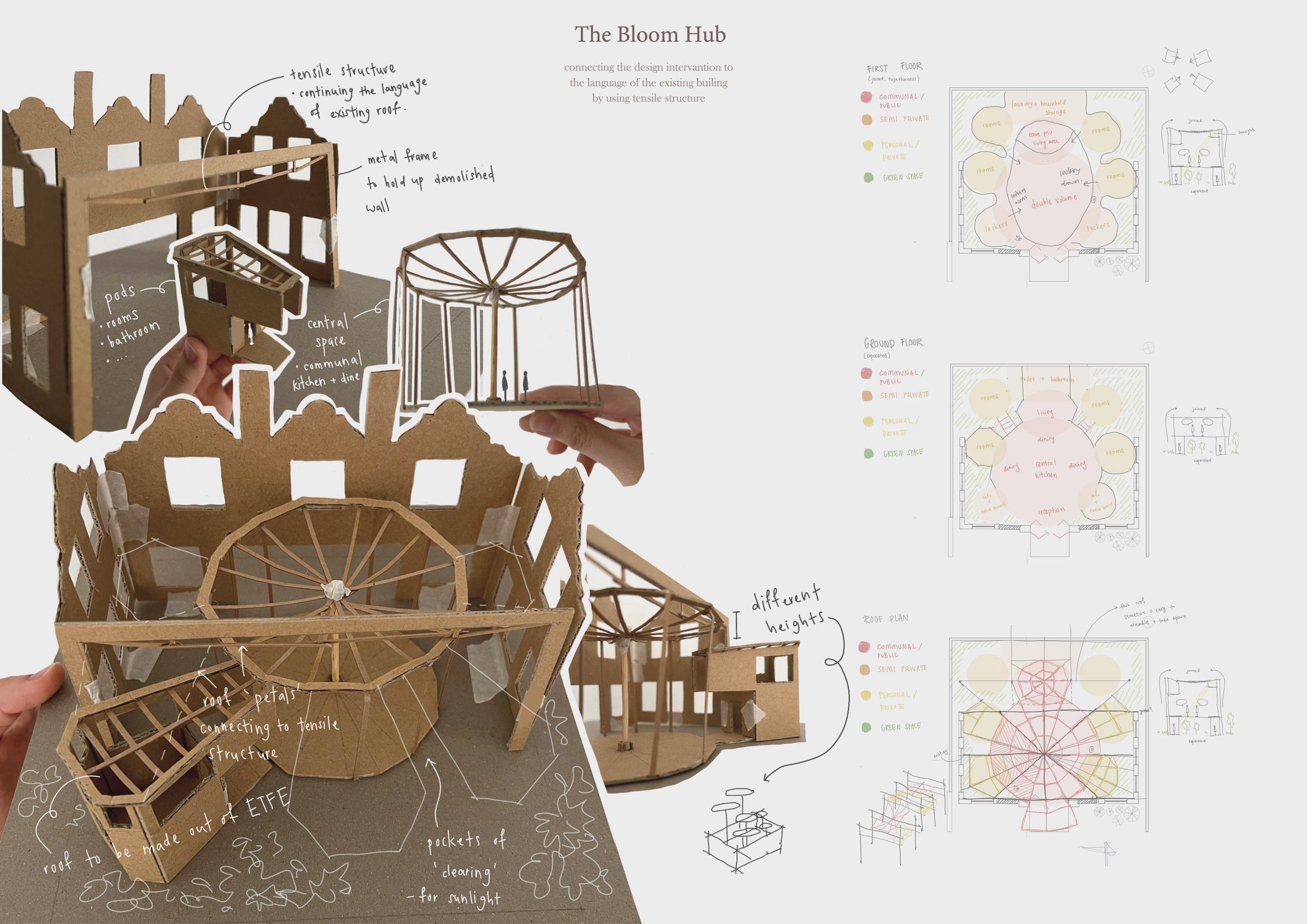
The Bloom Hub by Yen Yi Pan
“Taking cues from the community-driven essence of the site’s past, connected to Christ Church and its adjacent school building, The Bloom Hub aims to reclaim the site’s original purpose as a gathering space to cultivate community and networks.
“It endeavours to do so without the religious associations typically tied to churches, fostering inclusivity and connectivity beyond belief systems.
“The Newcomer Hub offers temporary housing and fosters connections among young adult newcomers and locals to integrate them into the city’s community fabric.
“Promoting minimal living, the project advocates for minimalistic bedroom setups to encourage residents to utilise communal areas, enhancing social interaction.
“It creates shared experiences by offering communal spaces for gardening, TV watching and cooking, to create togetherness, also serving as a public coworking and information hub which advertises Brighton’s attractions and events, encouraging interaction and cohesion between residents.”
Student: Yen Yi Pan
Course: BA Interior Architecture
Tutors: Judit Pusztaszeri, Dr Rafaella Siagkri, Terry Meade, Dr Elisa Lega, Dr Zakkiya Khan, Dr Peter Marsh, Alberte Lauridsen and Lizzie Walkden
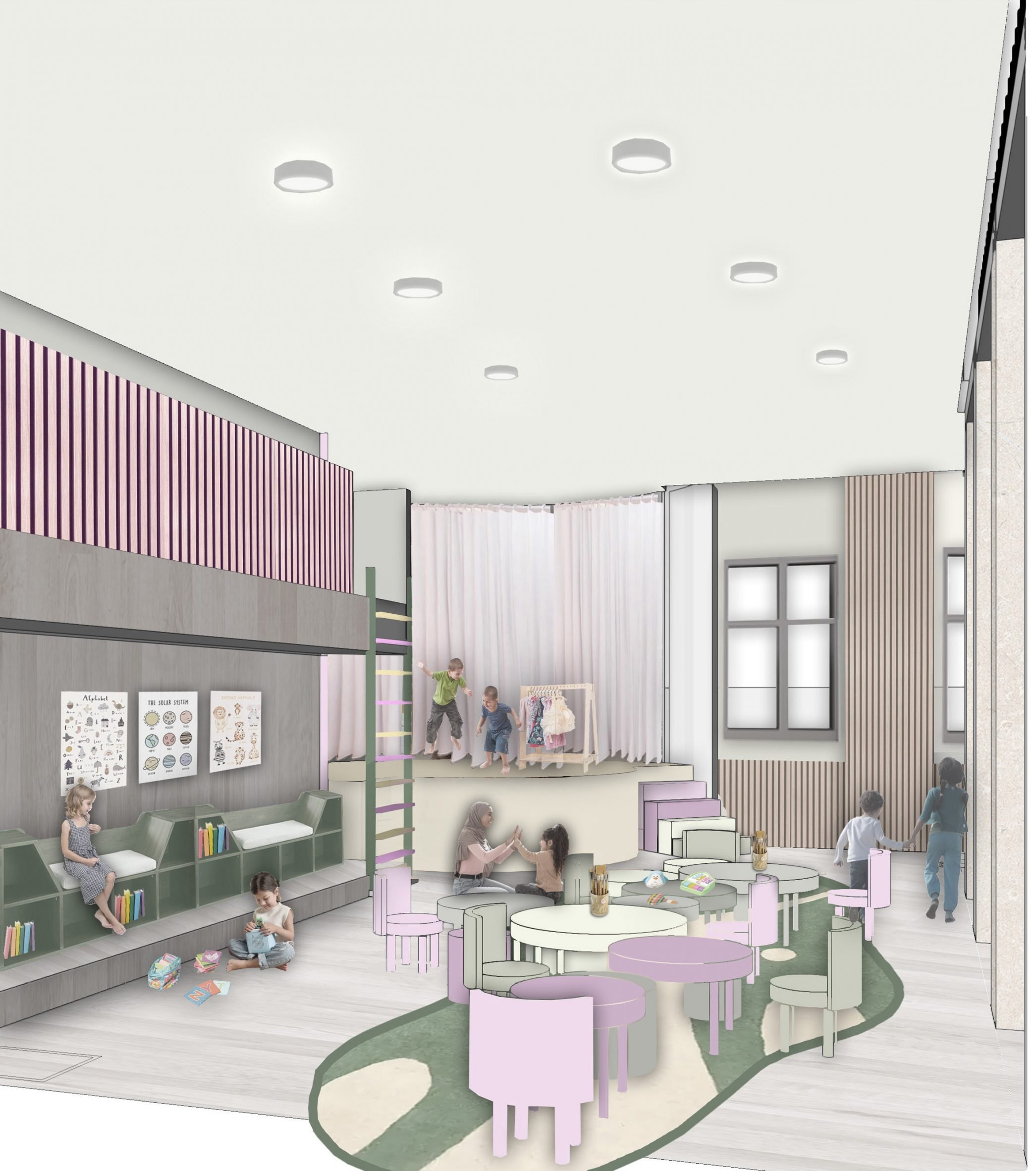
Connections and Roots by Elena Mouis
“Connections and Roots aimed to integrate Syrian refugees into Brighton by creating a warm, welcoming environment that retained cultural heritage.
“Central to the concept was the notion of play and playfulness, fostering a non-judgemental atmosphere where friendships could blossom.
“The project envisioned a space that encouraged positive engagement with children and local volunteers, providing the freedom to use the space creatively.
“By incorporating elements of fantasy through performance and theatre, a vibrant community hub was created where cultural exchange and mutual support could thrive.
“This project aspired to build bridges and nurture a sense of belonging for all.”
Student: Elena Mouis
Course: BA Interior Architecture
Tutors: Judit Pusztaszeri, Dr Rafaella Siagkri, Terry Meade, Dr Elisa Lega, Dr Zakkiya Khan, Dr Peter Marsh, Alberte Lauridsen and Lizzie Walkden
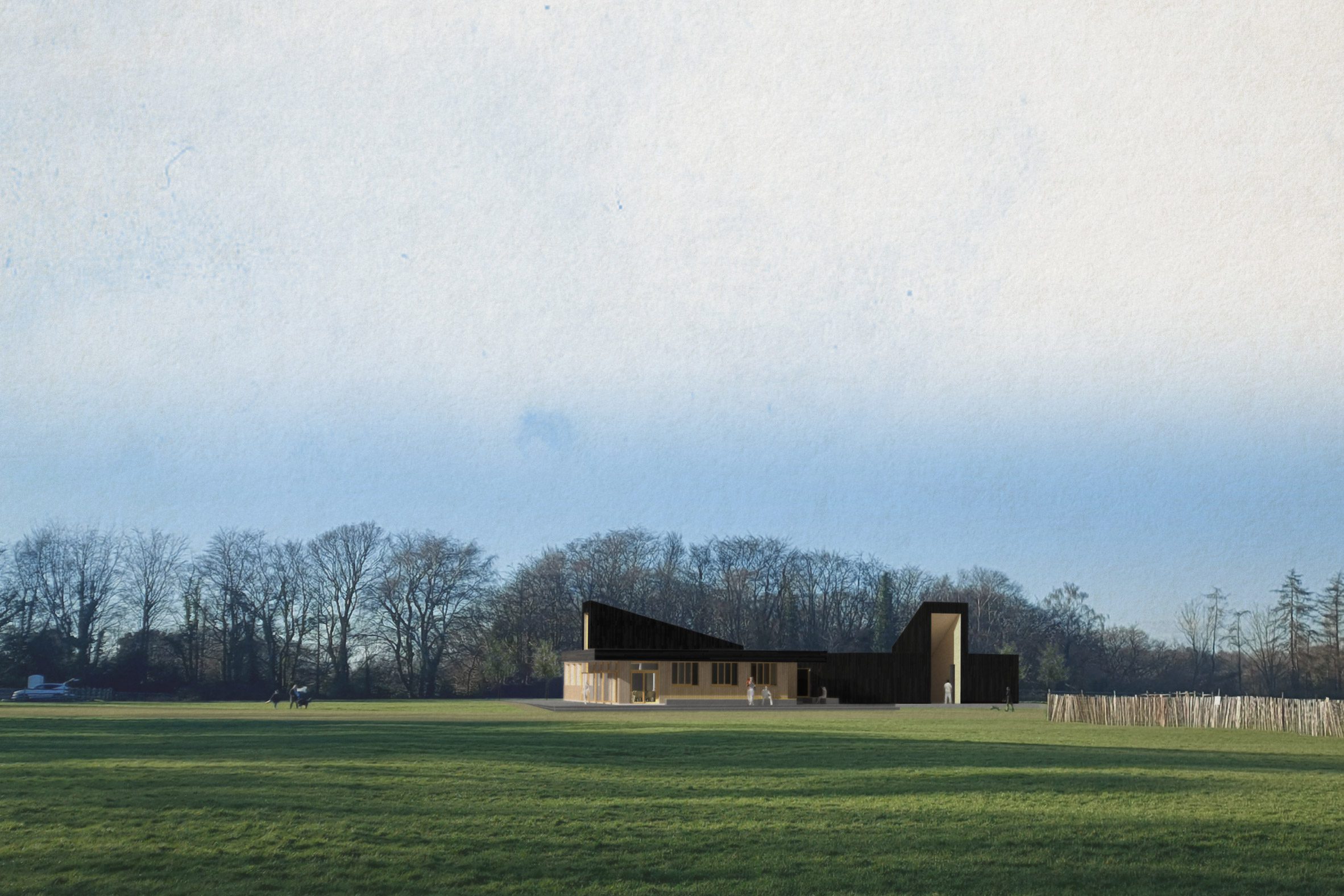
Sidley Cricket Club by George Armin
“My project is for a new cricket pavilion with changing rooms, a multifunctional community space and café for Sidley’s cricket club and the expanding Bexhill neighbourhood.
“The single-story programme offers a direct connection to the playing field and a low appearance within the landscape.
“This concept was also explored through materials, contrasting locally sourced, untreated and charred sweet chestnut cladding to match the surrounding woodlands understory layer light qualities.
“The two pitched archways feature key entrances for the public and private users also project light throughout parts of the community spaces and changing facilities.
“Exploration of the programme led to the development of a solid and void design concept, whereby private facilities, like the team changing rooms, have only carefully placed openable skylights and public spaces, like the café situated in the south, have large openable doors and windows to improve the building’s connection to the landscape.”
Student: George Armin
Course: BA (Hons) Architecture L6
Tutors: Glenn Longden-Thurgood, David Chambers and Tom Atkinson
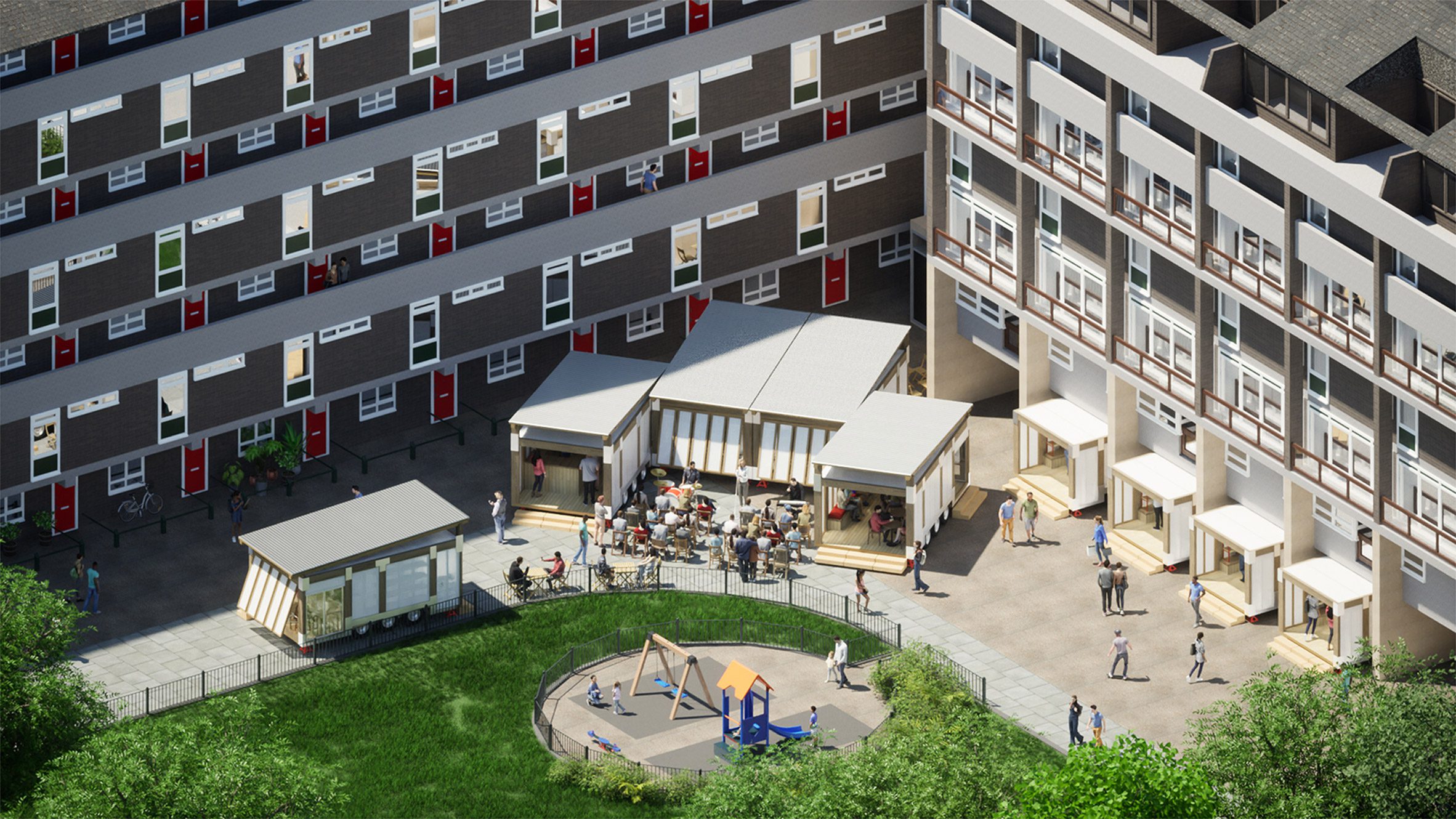
Mursell Council Estate by Charlie Smale
“My project explores ideas of community facilities and thresholds between the site and the surrounding community of Mursell Council Estate in London.
“I have designed a series of movable market pods that occupy the site facilitating community events and gatherings.
“The market pods work independently as shops, food vendors and community facilities, but can also be attached to create larger social spaces that allow for larger community events.
“The image depicts a social gathering with food vendors, seating, and a central performance space hosting the Brixton Chamber Orchestra, who have previously performed to the community on the estate.
“The pods can be easily changed by the residents to suit their needs facilitated by the bolted glulam structure which can be easily dismantled; this ensures that interventions can be adapted as required.”
Student: Charlie Smale
Course: BA (Hons) Architecture L6
Tutors: Georgia White and Antonio del Giudice
Partnership content
This school show is a partnership between Dezeen and University of Brighton. Find out more about Dezeen partnership content here.

